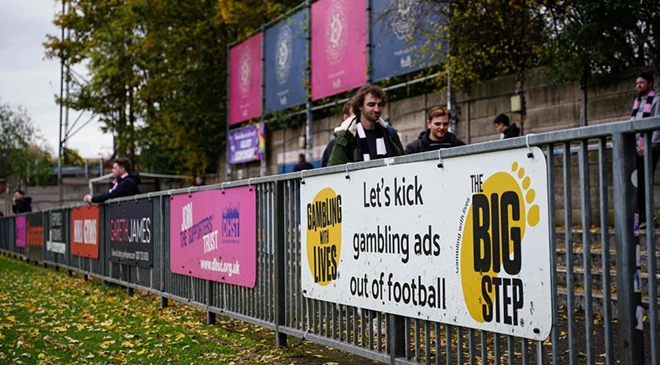 In a report, published today, the Culture, Media and Sport Committee calls for stricter measures aimed at reducing the volume of betting adverts seen during sports events. The Government has two months to respond to the recommendations of the report, which besides advertising, focuses on further improvements to the Gambling White Paper.
In a report, published today, the Culture, Media and Sport Committee calls for stricter measures aimed at reducing the volume of betting adverts seen during sports events. The Government has two months to respond to the recommendations of the report, which besides advertising, focuses on further improvements to the Gambling White Paper.
According to MPs, the Premier League, along with other sports governing entities, should minimise the ads seen in stadiums to protect vulnerable groups, especially children. The report highlights that the industry has changed and evolved dramatically following the liberalisation of the UK gambling market with the Gambling Act 2005. The shift to online gambling, particularly via mobile devices, has necessitated the review of the Act, with the Gambling White Paper eventually published in April 2023.
While the report endorses many of the measures in the Government’s Gambling White Paper, including the upcoming removal of gambling sponsorship from the front of Premier League match-day shirts, the Committee advises that this will not be sufficient to accomplish the set goal.
The findings of a recent study, cited in the report, suggest that front-of-shirt branding represents merely 7% of all gambling advertising visible during the ten matches surveyed. An additional study unveiled that nearly 7,000 other messages appeared during six of the matches under review on the opening weekend of the Premier League season.
Besides minimising the volume of gambling ads, MPs call for increasing the proportion of ads dedicated to responsible gambling. Horseracing and greyhound racing should be approached individually, considering their strong association with wagering.
The CMS Committee report also dwells on other protections for online gamblers envisioned by the Gambling White Paper. Most notably, special attention should be paid to a proposed system of financial risk checks. Gambling operators will be supposed to run such checks on consumers who lose a certain amount of money within a set timeframe. According to the report, the Gambling Commission must first ensure the checks safeguard customers’ sensitive data.
Furthermore, the report endorses the introduction of betting limits on online slots and suggests that they should not exceed £5, similar to those imposed on their land-based counterparts.
Concerning children’s exposure to gambling, the Government must review the case for prohibiting their access to social casino games, due to their close association with gambling activities.
As far as young adults aged between 18 and 24 are concerned, the report supports the Government’s approach, including extra protection mechanisms, lower thresholds for financial checks, and lower stake limits for online slots (£2).
The Chair of Culture Media and Sport Comments on the Report
 Dame Caroline Dinenage, a Conservative Party politician and Chair of the CMS Committee, has commented on the report, underlining the necessity to safeguard both children and other vulnerable groups, while simultaneously not violating the freedom of the majority of the population who perceive gambling as an issue-free pastime. “The Government needs to go further than the proposals in the White Paper and work with sports governing bodies on cutting the sheer volume of betting adverts people are being exposed to”, she said.
Dame Caroline Dinenage, a Conservative Party politician and Chair of the CMS Committee, has commented on the report, underlining the necessity to safeguard both children and other vulnerable groups, while simultaneously not violating the freedom of the majority of the population who perceive gambling as an issue-free pastime. “The Government needs to go further than the proposals in the White Paper and work with sports governing bodies on cutting the sheer volume of betting adverts people are being exposed to”, she said.
As the report suggests, while a complete ban on gambling advertising would not be appropriate, there is room for improvement and further regulation beyond the proposals of the Government’s Gambling White Paper.
The report concludes that the implementation of the Gambling White Paper should be done according to a strict timetable. Additionally, the Government and Gambling Commission should address the alarming trend of unlicensed operators targeting self-excluded players and continue to monitor the developments in the black market.
- Author


